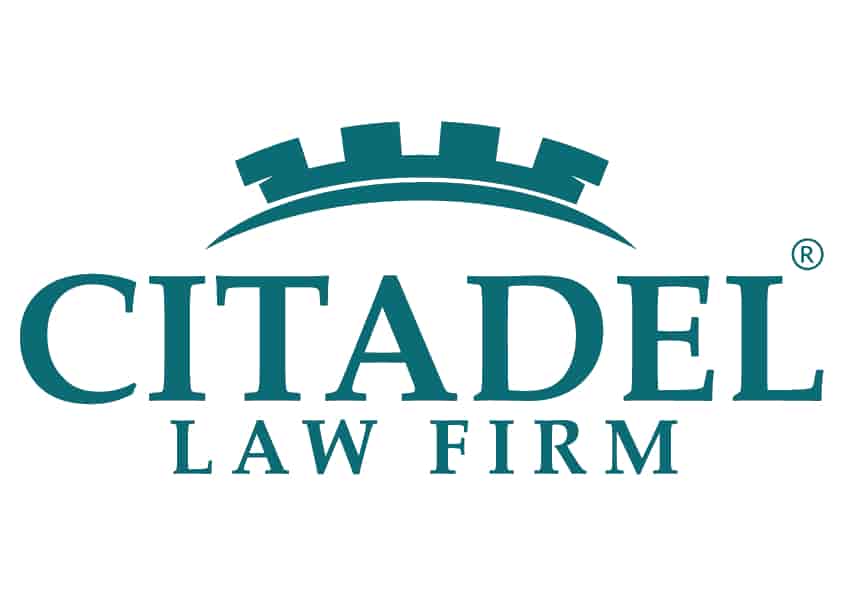Who Owns a Property in a Trust in Arizona?
Who owns the property in a revocable living trust in the state of Arizona? To learn the answer to this question, read this complete guide on the topic.
Who really holds the title to a house or parcel of land once it sits inside a trust? The answer shifts with the trust’s setup and the goals of the family involved.
At Citadel Law Firm, PLLC®, we focus on Estate Planning, Wills and Trusts, and Probate right here in Chandler, so the question pops up in our office almost every week.
This article walks through the roles inside a trust, the difference between revocable and irrevocable arrangements, and the steps required to place Arizona real estate into a trust.
Key Roles in an Arizona Trust
Every trust involves three core players, and knowing who does what helps clear up the ownership puzzle.
Grantor (Settlor)
The grantor starts the whole process by drafting the trust document and moving assets into it. Along with signing the trust, the grantor sets the rules about who benefits, when they benefit, and under which circumstances.
Trustee
The trustee takes legal title to the assets and must follow the instructions written by the grantor. Daily duties include investing funds, paying bills, sharing statements, and passing income or property to the correct people when the terms say so.
Beneficiary
Beneficiaries receive income, principal, or both. Their rights depend on the trust document, yet they hold no direct control over management decisions unless the terms grant them that power.
Ownership in Revocable vs. Irrevocable Trusts
Ownership shifts depending on whether the trust can be changed or not. Let’s look at each structure.
Revocable (Living) Trusts
In a revocable trust, the grantor usually serves as the first trustee and keeps full control. The house, bank account, or brokerage account still counts as part of the grantor’s estate for income tax and estate tax purposes. A revocable trust uses the grantor’s Social Security number, so any rent, dividends, or sale proceeds appear on the grantor’s return. Creditors can still reach the assets if the grantor is sued.
Irrevocable Trusts
With an irrevocable trust, legal title moves away from the grantor to the trust itself. The trust receives its own tax ID, files its own return, and pays any tax due. The grantor cannot yank assets back without court approval or beneficiary consent, which is why this design often shields property from future lawsuits and creditor claims.
Arizona Trust Code: Key Provisions
Arizona Revised Statutes §§14-10101 through 14-11102 supply the roadmap for creating and running a trust in the state. These sections spell out the duty of loyalty, the need for prudent investment, and the right of beneficiaries to request information. Courts stay out of trust matters unless a dispute drags the trustee or a beneficiary into a formal petition.
Transferring Real Property into a Trust in Arizona
Placing a house or lot into a trust takes more than a handshake. A new deed must list the trustee as the grantee and describe the property in the same way the current deed does. After signing in front of a notary, the deed gets recorded with the County Recorder so everyone knows the trust is now on title.
- The grantor signs a warranty or quitclaim deed naming the trustee
- The deed goes to the Recorder’s office along with the recording fee
- The original or a certified copy is kept with the trust binder for easy reference
Skipping the recording step leaves the old owner on public records, defeating the whole purpose of funding the trust.
Benefits of Placing a Home in a Trust in Arizona
Real estate often drives the need for formal planning, and Arizona families pick trusts for four main reasons.
Avoiding Probate
Probate opens a court file, forces waiting periods, and generates costs. A home titled to a trust passes to successor beneficiaries with no court order, saving months of hassle and keeping the transfer private.
Asset Protection
An irrevocable trust can guard a family cabin or rental from lawsuits against the former owner. Since the trust holds the deed, a personal creditor cannot place a lien on the property.
Estate Tax Reduction
Moving high-value property into certain irrevocable trusts freezes or shifts growth outside the taxable estate, which can trim future federal estate tax once thresholds are met.
Privacy
Probate filings become public, yet a fully funded trust stays off the county docket. Family members settle affairs in the lawyer’s office instead of the courthouse hallway.
Potential Downsides of a Revocable Living Trust
A living trust sounds simple, yet it does carry a few drawbacks worth weighing.
- Upfront legal work and recording fees raise total planning costs.
- Every asset must be retitled, and forgotten items drag the family right back to probate court.
- A pour-over will, a financial power of attorney, and a health care directive are still needed for a full plan.
Table 1 – Comparing Revocable and Irrevocable Trust Ownership
| Feature | Revocable Trust | Irrevocable Trust |
| Who controls the asset? | Grantor while living | Trustee under trust terms |
| Included in the grantor’s estate tax? | Yes | No, in most cases |
| Creditor protection | None | High, if properly drafted |
| Income tax return | Grantor’s Form 1040 | Trust Form 1041 |
| Flexibility to amend | High | Low |
This quick snapshot helps families match their goals with the right structure.
Considering a Trust? Contact Citadel Law Firm, PLLC®, Today
Creating a trust is more than filling in blanks on a form. Our team listens to your story, drafts clear instructions, and records the deeds that make the plan work. Call us at 480-565-8020 or visit our Contact Us page to set up a chat. We look forward to helping you protect your home and keep your wishes intact.
Schedule a Free Consultation
*You will be redirected to schedule a call with us after submitting the request.
Meet Attorney David Gerszewski
5.0 star rating from 170+ Google Reviews
Attorney David Gerszewski is specialized in Estate Planning, Trust & Probate Law and the founder of Citadel Law Firm PLLC. He is known for making legal matters easy to understand. His background in finance and tax law makes the estate planning strategies he designs for his clients just right. When not practicing law, David enjoys time with his wife, and their amazing dog, Gunner.
WE WOULD LOVE TO HEAR FROM YOU!
CALL US AT (480) 360-4182
OR, simply fill in the form below, and we’ll contact you either immediately or as soon as we’re out of our current meeting.
*You will be redirected to schedule a call with us after submitting the request.
Related Posts



